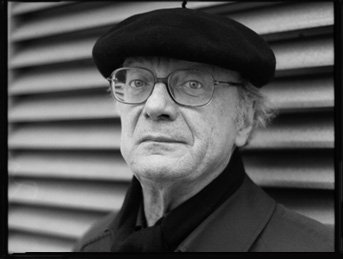Alfred Brendel - a tribute RSS

Alfred Brendel - a Tribute
As a piano teacher, a former music examiner, and indeed, a lifelong student of the piano, I find myself continually drawn to artists who champion not just technical prowess, but profound intellectual engagement with the music. Alfred Brendel, who died recently, was such as performer, one with unique and powerful clarity. For those of us navigating the often-complex world of classical piano performance, Brendel offered a refreshing, almost bracing, perspective.
We live in an age where the pursuit of pristine perfection, of dazzling virtuosity, can sometimes overshadow the very heart of the music. While I certainly advocate for meticulous practice and a high standard of execution, Brendel reminded us that the journey extends far beyond the notes on the page.
Brendel's unwavering commitment to the score was something I admired. His performances were not about self-aggrandisement or theatrical display; they were about serving the composer, about peeling back layers of interpretation to reveal the unvarnished truth of the musical text. This is a lesson of paramount importance both for those students who play without taking note of the composer’s directions, and for those who express themselves before truly understanding the score and the context. Brendel showed us the virtue of deep study, of understanding the architecture, the harmony, the rhythmic pulse before adding one's own voice.
Brendel’s Beethoven, for instance, exuded a gravitas, a philosophical depth that transcended mere brilliance. Brendel didn’t shy away from the sometimes stark realities within Beethoven's writing. His intellectual rigour didn’t sacrifice emotional impact, but rather, informed it. This is particularly insightful for students grappling with the Classical period and beyond – understanding that precision doesn't equate to dryness, but rather, allows the inherent drama to unfold organically.
Brendel imbued Mozart with a profound sense of structure and, at times, a surprising weight. He found the depth, the undercurrents of emotion, even in the seemingly lighter movements. This is a vital lesson for our younger students who might perceive Mozart as somewhat inconsequential. Brendel demonstrated the deceptive simplicity, the genius woven into every phrase.
Beyond his performances, Brendel's writings offered invaluable insights into his musical philosophy. His essays were as precise and insightful as his playing, shedding light on the composer's intentions and the performer's responsibilities. He spoke of the ‘moral imperative’ of the performer to deliver the composer's message with integrity. This is a concept I often discuss with my own students – the idea that we are not merely playing notes, but acting as conduits for something much larger.
In a world saturated with recordings and immediate access to countless interpretations, Alfred Brendel’s contribution stands as a beacon of intellectual integrity and profound musical understanding. He continues to remind us that true artistry lies not in superficial flash, but in a deep, respectful, and unceasing engagement with the score. For every aspiring pianist, and indeed, for every seasoned musician, his legacy serves as a powerful testament to the enduring power of the unvarnished truth in music. And that, I believe, is a lesson we can all take to heart.